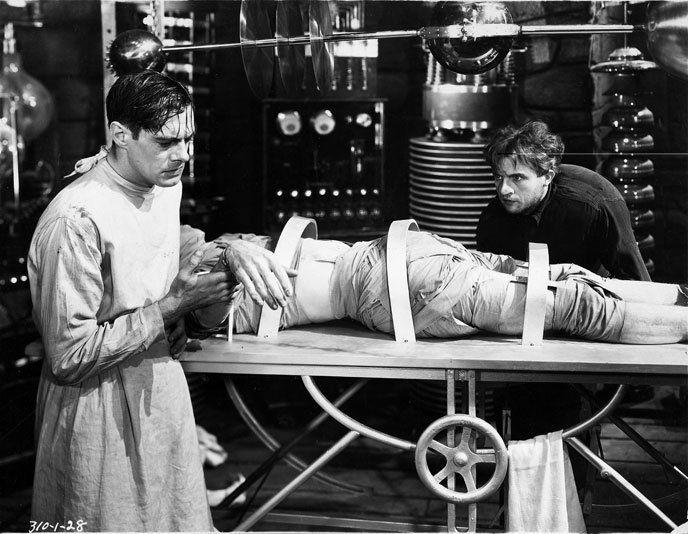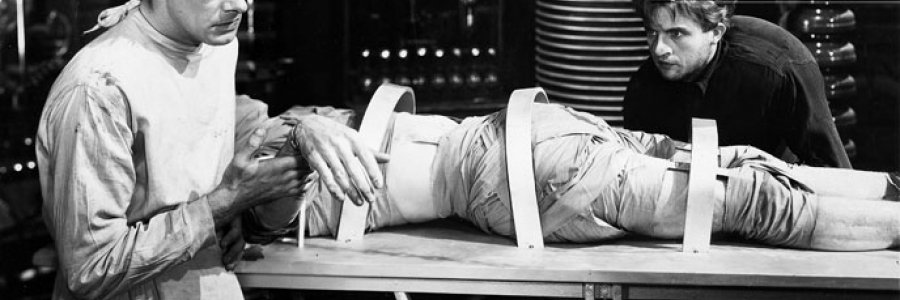When you imagine the classic 1931 Frankenstein movie with Boris Karloff, you probably remember two phrases: "It's alive! It's ALIVE!" and "he tampered in God's domain." I think we all know the plot: Doctor Frankenstein goes too far in his experiments, creating a creature that bursts out of control, accidentally kills a small girl, then is hunted and destroyed, with Doctor Frankenstein himself dying in the final struggle. It's all a poetic example of the dangers of science gone too far.
Except that's not what happens, at all.
Once Frankenstein brings the Monster to life, the Doctor is initially happy with and indulgent of the Monster, giving him plenty of time for his brain to settle into his new body and tolerant of the Monster's behavior. Indeed, the Monster barely reacts to any stimulus initially.

Unfortunately, as soon as the Monster sees fire he freaks out and has to be restrained.
Now, this is important: If the Monster is a human that's just slowly gaining consciousness over the course of days or weeks, fire should not shock him. His reaction implies that the Monster might not be human, but the Doctor refuses to kill him; instead just restrains him. In other words, the Monster's reaction to fire may just be a quirk, not proof that he's inhuman.
Then, of course, the Monster is abused and mistreated the Doctor's assistant, leading the Monster to kill him, then escape, which escalates to the accidental death of the young girl in the countryside.
But, importantly, the Monster only behaved badly because he was mistreated, Doctor Frankenstein did nothing wrong in bringing him to life. The Monster was merely a (physically strong) child reacting to stimulus.
This interpretation gains further support from the attitude of the Doctor's mentor, who insists that the Monster should be killed "like any dangerous wild animal." While the mentor is a calm man of science, he's played in a consistently pinch-faced manner, very prim and proper and conservative (in the non-political sense). He disapproves of the Doctor's behavior from the start and immediately calls for the Monster's destruction, having no sympathy for the Monster.
What about Doctor Frankenstein's obsession? He certainly does grow obsessed and mentally unstable, but after leaving the lab and reuniting with his fiance he's shown to have returned to a merely troubled personality. Creating the Monster doesn't destroy him; indeed, it's society's rejection of the Doctor, forcing him to do his work at night and in secret, that creates much of his mental strain. He's not stressed out because he's creating life; he's stressed out because he has to do it at night with only one (unstable) assistant in an abandoned tower in the middle of nowhere.
Doctor Frankenstein did nothing wrong.
(To be clear: This is one interpretation of the movie. I'm not sure even I agree with it. But it's interesting.)

![[Atom feed]](/user/themes/geek-archaeology/images/atom-feed.png)
![[RSS feed]](/user/themes/geek-archaeology/images/rss-feed.png)
![[iTunes podcast feed]](/user/themes/geek-archaeology/images/itunes-feed.png)